33rd Annual ACFE Global Fraud Conference (On-Demand)

Varies by Session
Online
Description
View sessions and earn CPE from the 33rd Annual ACFE Global Fraud Conference from the comfort of your home or office any time that's convenient for you.
All sessions are available for ACFE CPE, with 22 presentations eligible for NASBA CPE. You will receive a separate certificate for each session you complete.
Purchase the 33rd Annual ACFE Global Fraud Conference (On-Demand):
- Earn up to 30 NASBA CPE
- Access on-demand video recordings of nearly 80 conference sessions
- Have the flexibility to start or stop a course and pick-up right where you left off
Prerequisites
Varies by Session
CPE Information
| CPE Credit: | Up to 30 NASBA Credits |
|---|---|
| NASBA Information: | Fields of Study and NASBA-Approved CPE Credit Vary by Session |
| Advanced Preparation: | Varies by Session |
| Last Updated: | June 2022 |
| Delivery Method: | Online |
Credit by Field of Study
| Accounting: | 4 CPE (1 NASBA + 3 ACFE) |
|---|---|
| Auditing: | 13.5 CPE (4 NASBA + 9.5 ACFE) |
| Business Law: | 1 CPE (0 NASBA + 1 ACFE) |
| Information Technology: | 26.5 CPE (7.5 NASBA + 19 ACFE) |
| Management Services: | 3.5 CPE (1 NASBA + 2.5 ACFE) |
| Specialized Knowledge: | 36 CPE (5.5 NASBA + 30.5 ACFE) |
| Behavioral Ethics: | 10.5 CPE (5.5 NASBA + 5 ACFE) |
| Business Management and Organization: | 3 CPE (1.5 NASBA + 1.5 ACFE) |
| Communications and Marketing: | 5 CPE (4 NASBA + 1 ACFE) |
| Personal Development: | 3 CPE (0 NASBA + 3 ACFE) |
Sessions
Effectively Blowing the Whistle Under the Federal False Claim Act, Sponsored by Morgan and Morgan - SS1
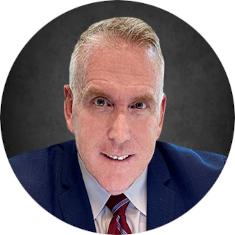
Clark Bolton, J.D., CFE, AHFI
Morgan & Morgan, Attorney
CPE: 1.0 | Ethics CPE: Yes
Session Level: Advanced
Field of Study: Specialized Knowledge
Recommended Prerequisite: An understanding of basic ethical requirements for CFEs, including how ethics and corporate compliance require CFEs to act when faced with potential evidence of fraud.
This presentation will examine the options CFEs face when confronted with credible evidence that the organization they work for is engaged in fraudulent activity against the U.S. government. First, the speaker will provide an overview of the ethical requirements for CFEs. Next, we will discuss how ethics drive the response to the evidence of fraud, including an examination of the pros and cons for each option. Finally, we'll examine in detail the Federal False Claims Act (FCA) under 31 U.S.C. 3729, as well as how the FCA is a truly valuable mechanism for protecting CFEs who find themselves in this precarious situation. Throughout the session, the presenter will share his own experiences, including finalizing a $137.5 million FCA settlement (as one of four whistleblowers) where the entire executive suite (CEO, CFO, and general counsel) of a Fortune 500 company was federally indicted, tried and found guilty of healthcare fraud in a companion criminal case for actions alleged from the FCA cases.
You Will Learn How To:
- Recognize how ethics and decisions are intertwined
- Navigate the provisions of the Federal False Claims Act (FCA) and its implications for whistleblowers
- Apply lessons learned from a real-life FCA case
How a Leaky Password Shut Down a Pipeline - SS3

Rick Roybal
Martindale Consultants, Inc., Project Manager
CPE: 1.0 | Ethics CPE: No
Session Level: Basic
Field of Study: Information Technology
Recommended Prerequisite: None
The world’s infrastructure is under attack. Recent ransomware hacks of private and public entities are requiring organizations to prioritize the safeguarding of their assets and customers, as well as educating employees on cybersecurity risks. This session provides an overview of the Colonial Pipeline cybersecurity attack while also calling attention to the dangers of hacking organizations, such as DarkSide, on the world’s vital businesses.
You Will Learn How To:
- Recall the history and explain the basics of ransomware
- Determine how Colonial Pipeline was hacked
- Identify hacker types
- Recognize the vulnerabilities that hackers target
- Name practical recommendations to help your organization protect itself from hackers
How to Put the Quality in Your Fraud Report - SS4
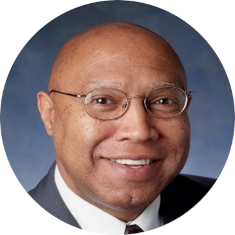
Jonnie Keith
JonSherr Enterprises, Audit Trainer and Consultant
CPE: 1.0 | Ethics CPE: No
Session Level: Basic
Field of Study: Communications and Marketing
Recommended Prerequisite: None
The objective of any fraud report is to provide investigative information on possible fraudulent activities. It represents the result of weeks or months of reviews, analyses, interviews and discussions. The quality of that report will have an impact on how well the results of the investigation are understood and accepted — even the best investigation might not survive a poorly written report. A quality fraud report should provide management with information that is accurate, objective, clear, concise, relevant and timely. An added bonus would be to provide recommendations to mitigate future occurrences. Each attribute adds to the quality of the report and increases the chances that the report will be beneficial to management and other users.
You Will Learn How To:
- Identify the quality standards related to fraud reports
- Review various report-quality enhancements
Investigate with Biometrics, Sponsored by Nuance - SS5

Simon Marchand, CFE
Nuance Communications Canada, Inc., Chief Fraud Prevention Officer
CPE: 1.0 | Ethics CPE: No
Session Level: Intermediate
Field of Study: Information Technology
Recommended Prerequisite: Basic knowledge/understanding of biometrics technology
In this session, you will learn how to investigate three types of fraud attacks with three different techniques using biometrics. You will see how you can identify and link cases from a single network of criminals performing account takeovers against several victims by leveraging voiceprints, device prints and call metadata linking victims, interactions and fraudsters. You will then experience how to identify fraudsters who attempt social engineering against a call center using voice clustering and conversational biometrics. Last, you will learn how to investigate potential friendly fraud by analyzing biometrics information and performing historical analysis of the call centers’ interactions.
You Will Learn How To:
- Investigate various types of fraud attacks with different biometric techniques
- Apply biometric approaches to identify frauds such as account takeovers and social engineering attempts
- Analyze biometrics information and perform historical analysis
Using Enterprise Risk Management to Bring Fraud, Audit, and Compliance into Focus - SS6

Benito Ybarra, CFE
CPE: 1.0 | Ethics CPE: No
Session Level: Intermediate
Field of Study: Management Services
Recommended Prerequisite: Knowledge of COSO ERM, the Three Lines Model and/or risk management
Not all organizations invest in ERM, but you can still employ ERM principles to ensure a sound fraud, controls, and compliance focus. This session will help provide an overview of enterprise risk management, the Three Lines Model, and how to ensure collaboration and alignment in strengthening your organization.
Need for Gamification of Internal Audit and Ethics and Compliance - SS7

Rajiv Gupta, CFE, CCSA, CISA
Flipkart (Walmart Group Company), Vice President & Group Head – Internal Audits
CPE: 1.0 | Ethics CPE: No
Session Level: Intermediate
Field of Study: Auditing
Recommended Prerequisite: Understand fundamentals of auditing and ethics and compliance
The internal audit and ethics and compliance functions play a key role in assessing and identifying risks, while also looking for ways to improve the effectiveness of their assessments and interventions. Experiments in the field of behavioral economics have shown that subtle changes to how a message is presented can influence people’s decision-making, particularly when it comes to decisions about risks. It links up with the realization that people’s decision-making is not solely based on rational factors but is also influenced by subconscious drives and motivations that facilitate a particular behavior. By making smart use of our subconscious inclination to play games and improve our game playing skills, we can bring about safer, more hygienic — and therefore less risky — behavior.
You Will Learn How To:
- Apply the concept of gamification and using mobile apps to drive change in people's behavior
- Assess how gamification affects group behavior, while leaving room for a mix of competition and collaboration
- Identify new forms of risk analysis and behavioral intervention that are potentially more effective than the current tools and techniques
Fraud and Money Laundering Will Be Eternally Linked - SS8

Dwayne King, CFE
Grant Thornton LLP, Senior Manager Forensics AML Advisory
CPE: 1.0 | Ethics CPE: No
Session Level: Overview
Field of Study: Specialized Knowledge
Recommended Prerequisite: None
In this session, we will cover both the basics of and the history of money laundering. Building off this foundation, we will walk through some money laundering methodologies and typologies using actual case studies. The discussion will then explore how every fraud investigation is also a money laundering investigation and how the investigative steps and techniques are similar. As the session closes, we will discuss how a money laundering expert may help drive your fraud case.
You Will Learn How To:
- Develop an understanding of money laundering
- Recognize the different stages of a money laundering process
- Identify how understanding the linkage between fraud and money laundering can improve your chances of success
Opening General Session: Pav Gill and Tony Kwok - Keynote Session

Pav Gill, Bruce Dorris, J.D., CFE, CPA, Tony Kwok
CPE: 1.5 | Ethics CPE:
Session Level: Overview
Field of Study: Specialized Knowledge
Recommended Prerequisite: None
In the opening general session, you'll hear from Pav Gill and Tony Kwok.
A former Allen & Overy and Clifford Chance lawyer, Gill has extensive experience in financial services laws, focusing on payments and digital assets/cryptocurrencies. He is best known for being the whistleblower who exposed Wirecard, one of Europe's greatest financial scandals.
Tony Kwok has more than 40 years of experience in the anti-corruption field. He joined the Hong Kong Independent Commission Against Corruption (ICAC) shortly after its inception in 1975 and fought to transform Hong Kong from a city of corruption.
Utilizing Technology to Ensure Procurement Integrity - 2A/7A
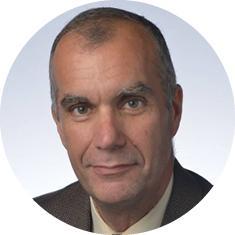
Tom Caulfield, CFE, CIG, CIGI
Procurement Integrity Consulting Services, Chief Operating Officer
CPE: 1.5 | Ethics CPE: No
Session Level: Intermediate
Field of Study: Information Technology
Recommended Prerequisite: Working knowledge on the fundamental elements of data analytics. Experience working within the area of procurement/contract oversight and/or contract management.
Procurement integrity is typically defined as honest, fair, impartial, transparent and legal contracting. Every organization strives for procurement integrity and will institute a full range of procurement rules, polices, regulations and guidance to ensure its existence. However, given the full spectrum of where and when noncompliance can occur, it can be challenging and costly to identify procurement integrity breaches. Thankfully that problem is now gone; today, with the help of sophisticated data analytics techniques, organizations can ensure procurement integrity exists more effectively and efficiently across the entire acquisition process. During this session, you will learn how to can incorporate analytics into our contracting compliance reviews, along with practical examples.
You Will Learn How To:
- Assess global views on how to best build analytics into your contract compliance, prevention or detection approach
- Examine practical examples of analytical searches currently being used with contracting data
- Apply data analytics visualization
Corporate Investigative Interviewing: Making Sure Your Interview Approach Leads to Successful Prosecutions - 2B/7B

Jonathan Davison
Forensic Interview Solutions (FIS) Limited, Managing Director
CPE: 1.5 | Ethics CPE: No
Session Level: Basic
Field of Study: Communications and Marketing
Recommended Prerequisite: None
The session will discuss and highlight the need for ethical interviewing techniques and how to work with law enforcement to enable successful prosecutions. We will explore the transition from interrogations to investigative interviews and the prosecutorial challenges to interrogation-based interviews.
You Will Learn How To:
- Plan, conduct and evaluate investigative interviews within fraud investigations
- Make investigative decisions and record the rationale
- Apply different interview methods
- Recall the PEACE framework of investigative interviewing
Violation of Public Trust: Inside the Nation's Largest Public Corruption Scandal - 2C/7C
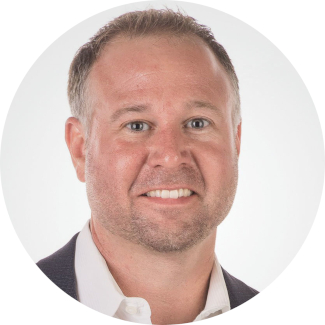
Jeff Matthews, CFE, CPA
StoneTurn, Partner
CPE: 1.5 | Ethics CPE: No
Session Level: Intermediate
Field of Study: Specialized Knowledge
Recommended Prerequisite: A general working knowledge of bribery and kickback schemes, and the fiduciary duty owed by elected officials
From 2011 through 2017, a technology company secured more than $70 million in contracts with Dallas County Schools through an elaborate bribe and kickback scheme. The investigation exposed a web of corruption, staggering financial mismanagement, hidden personal relationships and conflicts of interest inside an agency that transported tens of thousands of children to school each day. The fallout was extensive, leaving the 175-year-old agency bankrupt and dissolved. When the dust settled, the school's superintendent and the technology company's president were each sentenced to seven years in prison and ordered to pay $125 million in restitution. Two others also pleaded guilty, including the district’s president, who pleaded guilty to tax evasion for failing to pay taxes on payments disguised as campaign contributions. For their commitment to pursuing the story, local investigative journalists received the Peabody award, which honors the most powerful, enlightening and invigorating stories in television, radio and online media. This session will explore the intricacies of this case, the investigation, and the outcome, and offer attendees lessons learned that they can apply to prevent and respond to similar schemes.
You Will Learn How To:
- Assess the scheme and address the multiple control failures that led to the district and its leaders’ demise
- Recognize various methods used in carrying out bribery and kickback schemes
- Apply best practices for identifying information used in gaining indictments
- Determine internal control deficiencies
- Implement appropriate remediation efforts
Beyond the Image of Diversity: How to Create a Culture of Inclusion - 2D/7D

Dima Ghawi
Dima Ghawi, LLC, Leadership Keynote Speaker
CPE: 1.5 | Ethics CPE: Yes
Session Level: Advanced
Field of Study: Behavioral Ethics
Recommended Prerequisite: An understanding of the terms diversity and inclusion. Knowledge of different DEI practices
While it is reassuring that more organizations recognize the value of diversity in their teams and are implementing metrics to measure progress, the real goal of diversity is to create a culture of inclusion and belonging. By focusing on establishing an inclusive environment, organizations can unlock the true value of diversity. In this presentation, three tips are shared based on workplace surveys and interviews that have been conducted across a variety of organizations. Creating a culture of inclusion is no longer simply “a nice to have.” Instead, it is essential for recruiting, engaging and retaining top talent, and, as a result, increasing the competitive advantage of the company. Audience members leave with actionable takeaways that can be employed to create a productive, engaging and inclusive workplace for their team.
You Will Learn How To:
- Recognize what diverse employees are looking for and how to integrate these needs into your management styles
- Determine ways to create a safe and inclusive workplace culture
- Define unconscious bias and understand its effect in the workplace
How Well Do You Understand Digital Wallets and Alternative Payment Systems? - 2E

Dr. David Utzke Ph.D., CFE
University of Advancing Technology, Associate Professor
CPE: 1.5 | Ethics CPE: No
Session Level: Advanced
Field of Study: Information Technology
Recommended Prerequisite: Knowledge of or experience with technology like NFC, SE and HCE used with digital wallets
The recent acceleration of digital trends across payments and e-commerce has propelled the alternative payment systems industry to a pivotal moment and has changed the payments industry forever. Restrictions and guidelines put in place to deter the spread of COVID-19, along with the health and safety concerns associated with physical cash and surfaces such as payment terminals, have forced consumers to change their everyday behavior and led to a surge in digital and contactless payments. Cash is no longer king, and headlines like “Half of Mobile Users to Pay by Wallets by 2025 As Contactless Booms” are not exaggerated. These trends need to be taken seriously by financial criminal investigators as COVID-19 has accelerated a change that was expected to take place over several years. This session will explore alternative payment systems and what investigators should know to stay one step ahead of the fraudsters as the industry continues to evolve.
You Will Learn How To:
- Navigate the expansion of digital currencies, including virtual currency and cryptocurrency
- Compare the types of digital wallets that exist and how they are used in alternative payment models, such as e-wallets, mobile wallets and crypto-asset wallets
- Assess some of the top alternative payment systems and what investigators should be aware of
When an Audit Turns Into a Fraud Investigation - 2F/7F

Robert Rudloff, Jr., CFE, CIA, CRMA
MGM Resorts International, Senior Vice President, Internal Audit
CPE: 1.5 | Ethics CPE: No
Session Level: Intermediate
Field of Study: Auditing
Recommended Prerequisite: Knowledge of internal auditing principles and techniques; Knowledge of fraud investigation protocols and techniques
Often in an internal auditor’s career, evidence will come to light that indicates the possibility of fraud. The fraud might be well concealed or might be known by many who were afraid to speak up. Once the indicators of a fraud are detected, the internal auditor must change their mindset from routine auditing procedures and the audit budget to investigation, evidence collection and protection, and interrogation. In this session, the speaker will discuss specific cases from his 42-year auditing career where an audit uncovered fraud. You will learn about communication of suspicions and review of preliminary evidence with internal audit leaders; protection of evidence collected and still to be collected; engaging other trusted individuals, including the office of general counsel, compliance officer, security investigations, IT security, C-level executives, and even the audit committee; and communication with industry regulators, if deemed necessary. Most of all, the discussion will focus on protecting the integrity of the investigation without exposing the company, its leaders or even the internal auditor to liability.
You Will Learn How To:
- Recognize the indicators of fraud
- Determine the communication process
- Consider the potential for prosecution, if so warranted
Facing Fraudsters to Recover Assets - 2I
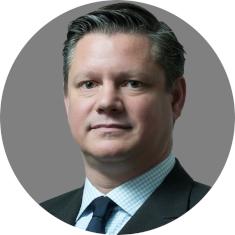
Daniel Barton, CFE, FCCA
Alvarez & Marsal, Managing Director
CPE: 1.5 | Ethics CPE: No
Session Level: Intermediate
Field of Study: Specialized Knowledge
Recommended Prerequisite: Knowledge of different types of fraud and the fundamentals of fraud investigations
Using an actual case, this session will demonstrate the steps that taken to recover the proceeds of fraud. This involved conducting a wide-ranging fraud investigation, dealing with the fraudsters and their network of business associates and eventually taking control of assets in Russia that had been purchased with the proceeds of fraud. The case starts in Kazakhstan and ends in Russia, but not before involving the U.K., Switzerland, Cyprus, Australia, the Netherlands, British Virgin Islands, Curacao, Belize, Canada, Seychelles, Latvia and Ukraine. Before the eventual take over of the assets, the investigation contended with faked documents, stolen funds, police raids, fraudulent transfers, armed occupation and interrogation by security services. The case study will highlight both the complexities of trying to identify, trace and recover the proceeds of fraud, as well as recommended best practices for being as effective as possible in these difficult circumstances.
You Will Learn How To:
- Examine first-hand examples of fraudulent transactions and related documents
- Recognize and plan for the difficulties in cross-border asset recovery situations
- Identify ways to avoid frauds and unethical behavior in businesses operating in more than one location/geography
Practical Open Source Intelligence for Fraud Investigators - 2J

Craig Pedersen, CFE
TCG Cape, Head of Digital Forensics
CPE: 1.5 | Ethics CPE: No
Session Level: Basic
Field of Study: Information Technology
Recommended Prerequisite: None
Open-source intelligence (OSINT) remains a key skill in fraud prevention, detection and investigation. The digital world is awash with data; with the appropriate tools and methodology, the modern investigator can add value to lifestyle analyses, investigative paths and of course cybercrime investigations. This presentation is filled with takeaways as we look at some of the more popular tools, techniques and methodologies available to fraud investigators. We will also cover fundamentals for online safety during OSINT research tasks and building out an OSINT capacity within your investigative environment.
You Will Learn How To:
- Identify usable tools for fraud prevention, detection and investigation
- Apply OSINT tools in the investigative context
- Acquire insight from case studies into how OSINT can be used for fraud prevention, detection and investigation
General Session: Michael Lewis - Keynote Session

Michael Lewis
Best-Selling Author, Moneyball, The Blind Side and The Big Short
CPE: 1.0 | Ethics CPE: No
Session Level: Overview
Field of Study: Specialized Knowledge
Recommended Prerequisite: None
In this session, Michael Lewis will be joining us virtually. Financial journalist and New York Times best-selling author, he has published sixteen books on subjects ranging from politics to Wall Street. Some of his popular titles include The Big Short, The Blind Side, Flash Boys and Moneyball.
Benchmark Drives Behavior: A Look at How Behavior Follows What We Measure - 4A

Guido van Drunen, CFE
Accounting Expert and Business Strategist
CPE: 1.5 | Ethics CPE: Yes
Session Level: Intermediate
Field of Study: Auditing
Recommended Prerequisite: Understand the following: the Fraud Triangle and the various components required for a determination of fraud to be made; A background in or understanding of auditing and fraud prevention; Understanding of compliance programs and their objectives.
In this session, participants will be led through the need for benchmarks and will learn to identify the risks that are inherent in benchmarks, their design, their use as a measurement and performance management tool, the gaming of benchmarks, and the monitoring of those benchmarks. This will be contrasted against the backdrop of the Fraud Triangle and will show the potential cause and effect relationship between the three sides of the Fraud Triangle. The presentation will also cover real-life examples where poorly designed resulted in aberrant outcomes. There will also be suggestions on how to better develop and monitor benchmarks.
You Will Learn How To:
- Identify both what a benchmark is trying to achieve and what risks exist in a benchmark that might drive aberrant behavior
- Determine what steps to take to ensure benchmarks are properly developed
- Enable the monitoring of benchmarks and ensuring that the actual benchmark objective is being met and identifying if there are unintended consequences
- Apply lessons learned from real-life examples and case studies to scenarios at your organization as part of fraud risk assessments
Fraud Risk: Behind the Scenes in the Executive Suite and Boardroom - 4B/7I

Bethmara Kessler, CFE
Speaker/Advisor, Former ACFE Regent
CPE: 1.5 | Ethics CPE: No
Session Level: Basic
Field of Study: Business Management and Organization
Recommended Prerequisite: None
Managing the risk of fraud is the responsibility of every leader and board member. However, there is no-one-size-fits-all approach to effectively discharging that responsibility. Unfortunately, we see in the news the stories about companies that fall victim to fraudsters and their schemes but never saw it coming. In this session, get a peek behind the scenes at what goes on in executive suites and boardrooms when it comes to managing a company’s fraud risk and learn how you can influence the discussion.
You Will Learn How To:
- Determine the role that leaders and board members should be playing to manage the risk of fraud for their business
- Identify the habits of leaders and boards that get it right when it comes to fraud risk management, and those that get it wrong
- Implement practical tips to gain access to and influence your leader’s and board’s anti-fraud action agenda
Payroll Frauds: Prevention and Detection - 4C
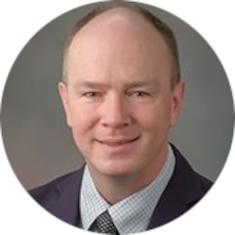
Ken Stalcup, CFE, CPA/CFF
Houlihan Valuation Advisors, Senior Director
CPE: 1.5 | Ethics CPE: No
Session Level: Overview
Field of Study: Auditing
Recommended Prerequisite: None
This session will highlight how a payroll should be processed; how things can and do go wrong; how to detect errors, irregularities and fraud in payroll systems; and how to prevent problems in a payroll system. We will begin with an overview of the payroll processing and payroll accounting systems, including how taxes should be calculated and collected, and the differences in payroll systems for small and large companies. Next, we will summarize frequent payroll frauds by using real-life case examples seen in small businesses along with various audit procedures used to test payroll for its accuracy, completeness, cutoff and occurrence. We will conclude with several best practices and a system of checks and balances to prevent payroll frauds.
You Will Learn How To:
- Identify common payroll fraud schemes used against businesses and nonprofits
- Determine specific, effective audit steps and procedures to identify errors, irregularities and fraud in payroll systems
- Apply a template for implementing best practices in payroll processing
The 7 Deadly Ethical Sins of Organizations - 4D

Amanda Erven, CFE, CIA, CPA
Audit, Consulting, Education. LLC., President
CPE: 1.5 | Ethics CPE: Yes
Session Level: Basic
Field of Study: Behavioral Ethics
Recommended Prerequisite: None
Pride, greed, lust, envy, gluttony, wrath, sloth: Have you ever thought of these "7 Deadly Sins" in terms of ethics at your organization? In this session, we will explore seven potential ethical sins in organizations today. From the wrath of disingenuous leaders to the lust of those with the move-fast-and-break-things mentality to the envy of organizations who do things just because everyone is doing it, the question is, which sins will your organization fall victim to. And how can you, as a leader (whether you are a fraud, audit, risk, compliance, accounting or other business professional), prevent it? Get ready for this thought-provoking, innovative session on ethics!
You Will Learn How To:
- Identify the 7 deadly ethical sins and if they are happening at your organization
- Examine real-life cases for each of the 7 deadly ethical sins in action and dissect the why behind each case to learn the lessons
- Determine ways leaders can prevent and detect each of the sins
Health Care: The Power of Leveraging Data Analytics to Identify Fraud, Waste and Abuse - 4E
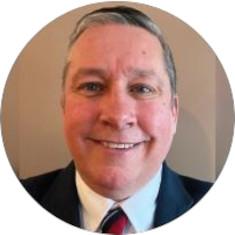
Richard Haines
Trusted Third Party (TTP), Partner Liaison
CPE: 1.5 | Ethics CPE: No
Session Level: Basic
Field of Study: Specialized Knowledge
Recommended Prerequisite: None
Data analytics is often the catalyst for successful healthcare fraud investigations. The HFPP can uncover trends and patterns by conducting analytics against their unique cross payer healthcare claims data base leading to potential investigations. The presentation will focus on current HFPP data analytics, with a focus on leveraging analytic results to develop investigative leads. Attendees will learn how HFPP Partners from government payers, commercial plans, and law enforcement leverage actionable leads to identify fraud, waste, and abuse.
You Will Learn How To:
- Discover how the HFPP is assisting commercial healthcare plans, government payers, and law enforcement to identify suspicious healthcare billings
- Examine the HFPP unique cross-payer data analytics and learn how HFPP Partners leverage HFPP analytic results to protect their healthcare programs
Shades of Green: The Rise of ESG Fraud - 4F
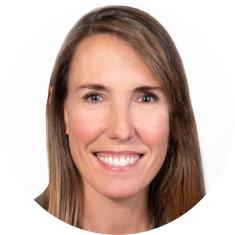
Linda Miller, Brad Preber, CFE, CPA/CFF, Rashada Whitehead, Jim Burton
CPE: 1.5 | Ethics CPE: No
Session Level: Overview
Field of Study: Specialized Knowledge
Recommended Prerequisite: Knowledge of fraud risk management concepts
With global ESG investing expected to reach $53 trillion by 2025, the market is smitten with companies claiming strong environmental, social and governance policies. With investing decisions increasingly being made based on these nonfinancial factors and a lack of consistent definitions, standards and metrics around ESG, a new fraud opportunity has been born. In this panel session, you will hear why the U.S. Securities and Exchange Commission issued a risk alert related to ESG investing, review the most egregious ESG frauds, and learn what organizations should be doing to properly manage this emerging fraud risk.
You Will Learn How To:
- Recall the definition of ESG and its impact and relevance to organizations
- Recognize the types of risks and contributing factors related to ESG fraud
- Navigate the relevant ESG frameworks and rating systems
- Identify the steps organizations can take to mitigate ESG fraud risk
eDiscovery Techniques and Technologies for Internal Investigations - 4I

Costel Ion, CFE
Deutsche Bank, Director
CPE: 1.5 | Ethics CPE: No
Session Level: Intermediate
Field of Study: Information Technology
Recommended Prerequisite: Knowledge of and experience with the fundamentals of eDiscovery
Internal investigations often require the use of various eDiscovery techniques and technologies to gather technical information and evidence. However, the vast array of data sources and the increasing volume of electronic data might pose significant challenges during an investigation. Data privacy should also be carefully taken into account when initiating and conducting eDiscovery. Investigators need to be well versed in eDiscovery and forensic techniques, tools and technologies to conduct an investigation in a timely and efficient manner.
You Will Learn How To:
- Identify the types of electronic data used during an investigation
- Assess eDiscovery and forensic techniques and technologies
- Examine technical challenges and data privacy requirements
International Perspectives on Whistleblowing - 4J

Sheryl Goodman, Rabiu Olowo, CFE, CICA, FCMA
CPE: 1.5 | Ethics CPE: Yes
Session Level: Basic
Field of Study: Specialized Knowledge
Recommended Prerequisite: None
Join us for a discussion among whistleblowing experts from around the world as they compare best practices, challenges and perspectives regarding whistleblowing internationally. You will hear about different approaches to establishing a whistleblower program, various challenges you might face in different regions and how to communicate your program to key stakeholders. You will also learn how to move whistleblowing forward to enhance protections as well as to encourage people to report perceived waste, fraud and abuse.
You Will Learn How To:
- Compare whistleblower standards in different regions
- Determine best practices for advancing whistleblowing around the world
- Identify similarities and differences in whistleblowing programs globally
The Fraud Epidemic: Pandemic Loan Fraud Investigations - 5A
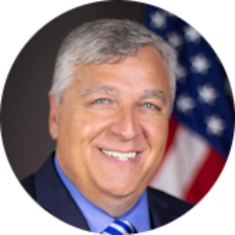
Christopher Covington
Pandemic Response Accountability Committee, Joint Operations Center Manager
CPE: 1.5 | Ethics CPE: No
Session Level: Intermediate
Field of Study: Auditing
Recommended Prerequisite: Experience with white-collar criminal investigations
The pandemic presented fraudsters with a unique opportunity to exploit new and existing federal loan programs that were designed to support small businesses that were devastated by government-mandated lockdowns. The massive influx of loan applications coupled with a need for quick approval meant loans were approved with less scrutiny and fewer controls. The result was an epidemic of fraud involving the Paycheck Protection Program (PPP) and Economic Injury Disaster Loan (EIDL) program. This presentation will explain how federal inspectors general created a task force to work collaboratively to investigate fraud schemes with their partners at the Department of Justice. Special attention will be given to how data analytics were used to identify fraudsters and build successful investigations. Case examples will be provided that describe different fraud typologies (e.g., fraud rings vs. individual actors) and to illustrate best practices in complex, white-collar financial investigations. The presentation will focus on social media investigative techniques, money laundering using cryptocurrency, and how to identify the organizer in a large-scale fraud ring. The information provided will be broadly applicable to other investigations in the banking industry.
You Will Learn How To:
- Recall the requirements of the PPP and EIDL program
- Assess how fraudsters were able to exploit vulnerabilities in PPP and EIDL to steal millions
- Examine how data analytics were used to identify fraudsters and prioritize investigations
- Navigate examples of PPP/EIDL fraud schemes, typologies and current trends
- Determine best practices in pandemic loan fraud investigations
Making Lemonade from Lemons: How to Benefit from the Imposition of a Monitor - 5B
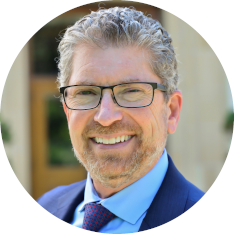
Eric Feldman, CFE, CIG, CCEP-I
Affiliated Monitors, Inc., Senior Vice President and Managing Director, Corporate Ethics and Compliance Programs
CPE: 1.5 | Ethics CPE: No
Session Level: Overview
Field of Study: Business Management and Organization
Recommended Prerequisite: None
The use of independent monitors has increased in recent years across a broad range of industries, issues and enforcement agencies. While Department of Justice monitorships for violations of the Foreign Corrupt Practices Act (FCPA) are the most well known, monitors are used to resolve matters with enforcement agencies at the federal, state and municipal levels in a variety of situations. Recently, there have been an increased number of significant resolutions of matters involving anti-trust, healthcare, and consumer issues at both the state and federal levels. In addition, the proactive use of monitors has proven to be beneficial to companies in improving their ethics and compliance programs and achieving better outcomes in settlements with government agencies. This session will identify the various situations in which monitors can be effectively used. It will also point out some critical factors in selecting a monitor in order to achieve the best outcome. The methods used by monitors to conduct their work and ways in which companies can obtain value from the imposition of a monitor will also be explored.
You Will Learn How To:
- Identify the situations where monitors are used and most important factors in selecting a monitor
- Identify the techniques monitors use to execute their responsibilities and assess the strength of a company's ethical culture
- Determine how organizations can leverage the imposition of a monitor to improve their anti-fraud posture
The Anatomy of Investment Fraud - 5C

Sarah Lewis, CFE
Miracle Mile Advisors Managing Director
CPE: 1.5 | Ethics CPE: No
Session Level: Basic
Field of Study: Specialized Knowledge
Recommended Prerequisite: None
The consequences of investment fraud can be severe. There is the obvious financial loss coupled with the potential adverse impact on an investor's lifestyle. With knowledge of how an organization or company might be vulnerable to fraud based on the nature of its activities, systems and procedures can be put in place to prevent or minimize fraud. What do these systems and procedures look like for preventing and identifying investment fraud? As anti-fraud professionals, our goal is to keep our investors out of harm’s way. Said differently, we have to determine if an investment is a fraud before it appears in the news. Only at the point where we are satisfied of its legitimacy can our analysis proceed to consider whether it is a worthwhile investment. This presentation focuses on the process that fraud examiners can employ to identify potential investment fraud. The presentation draws on many examples and case studies.
You Will Learn How To:
- Identify the investment types where fraud is most common and where greater due diligence is essential
- Assess why investors are vulnerable to fraudulent investment schemes
- Recognize the red flags or warning signs of investment fraud
- Draw on a systematic, repeatable process for investigating investment fraud
Do You Have a Whistleblower Case or Just a Complaint? - 5D

Tina Maier, CFE, Chase Jicha, CFE
University of Central Florida, Associate Director University Audit
CPE: 1.5 | Ethics CPE: No
Session Level: Intermediate
Field of Study: Specialized Knowledge
Recommended Prerequisite: Knowledge and skills needed to develop a summary of allegations from complaint documents and complainant interviews and identify governing directives applicable to specific allegations
In this session, you will learn how to assess if complaint information rises to the level of whistleblower status and navigate compliance with applicable whistleblower-related regulations. Additionally, you will learn about protections afforded to a whistleblower complainant and how confidentiality is maintained during and after a whistleblower investigation. You will also learn how to apply specific whistleblower complaint definitions within your organization to reduce organizational liability and provide a basis for complainant protections, confidentiality, notifications to the board and senior leadership, data preservation and investigative plan development. You will also examine processes used by the internal audit investigations section of one of the largest public universities in the United States, with more than 70,000 students, that deals with a wide range of fraud allegations
You Will Learn How To:
- Identify criteria used in determining the seriousness of a complaint
- Determine the processes and documentation involved in analysis and determination of whistleblower status
- Apply best practices for maintaining whistleblower confidentiality
Synthetic Identities and Entities: Chasing Fraudulent Ghosts - 5E

Steve Lenderman, CFE
ADP, Global Security Organization
CPE: 1.5 | Ethics CPE: No
Session Level: Overview
Field of Study: Specialized Knowledge
Recommended Prerequisite: Basic knowledge of personal and business identifying information and credit risk
During this session, we will review the underlying data points that build financial identities and the data sources that aggregate them. We will also explore how fraudsters can leverage this data to create synthetics identities and entities, enabling them to commit numerous frauds including, immigration, medical, financial and political.
You Will Learn How To:
- Identify credit and data manipulation
- Recognize how synthetic identities are used in various ways to commit fraud
- Detect and deter synthetic identities in your environment
- Develop controls and remediation of synthetic identities
- Analyze data sets to link and build machine learning capabilities
Biometrics Replacing Passwords: The Future of Account Protection - 5F

Samantha Weeks, CFE
Chime, Fraud Project Manager
CPE: 1.5 | Ethics CPE: No
Session Level: Overview
Field of Study: Information Technology
Recommended Prerequisite: None
Do you use one password for a lot of different accounts? If so, you have almost certainly been hacked. It is not a hack in the traditional sense, but your passwords are up for sale on the darknet. Passwords have proven to be poor access controls and now our security depends not on what we know, but what we are —and our unique biometrical markers make up who we are. This session will give you an idea of the evolving use of passwords and biometrics, and the future of account security.
You Will Learn How To:
- Consider password vulnerabilities
- Discover what biometrics are and how they are currently implemented
- Recognize how biometrics will replace passwords in the future
Rethinking the Fraud Triangle for the “Business” of Fraud - 5J/11B

Mary Breslin, CFE, CIA
Verracy, Founder and Managing Partner
CPE: 1.5 | Ethics CPE: No
Session Level: Intermediate
Field of Study: Specialized Knowledge
Recommended Prerequisite: Working knowledge and understanding of fraud basics, specifically the Fraud Triangle
What happens when fraud is conducted like a business? Fraud “professionals” are emerging and operating like legitimate businesses, with strategies, revenue goals, market niches, marketing plans and operational programs. And they are playing the long game, not just looking for the quick payout. In the past few years, we have seen fraud cases where the schemes take months or years to implement with no expectation of an immediate payoff, as if there is no pressure, but rather an orchestrated strategy being implemented and played out. Fraud fighters have already had to accept that some fraudsters with anti-social disorders do not rationalize their schemes. Should we reevaluate if the way pressure manifests and affects fraud is evolving in light of these fraud businesses? This session will examine the evolution of fraud as a long game, using some real-world cases, and discuss what fraud fighters should be incorporating into their fraud protection programs to address this new trend.
You Will Learn How To:
- Determine what a long game fraud is using real-world case studies
- Examine how these long-term fraud schemes fit into the Fraud Triangle
- Identify what can be incorporated into fraud protection programs to address the risk
Why Certified Fraud Examiners Should Care About the EU Whistleblower Protection Directive, Sponsored by OneTrust - SS9

Asha Palmer
OneTrust, Ethics & Compliance Officer
CPE: 1.0 | Ethics CPE: Yes
Session Level: Intermediate
Field of Study: Behavioral Ethics
Recommended Prerequisite: None
Most companies have an anti-retaliation policy, ranging from 16 words to 16 pages. However, would this meet the new requirements of the EU Whistleblower Protection Directive – which has a “reverse burden of proof” for retaliation? This means that, for the first time, it is no longer up to the individual to prove retaliation but, instead, the company must prove that they did not retaliate; failure to do so will result in penalties, and reputational damage.
You Will Learn How To:
- Prepare for the EU Whistleblower Protection Directive
- Implement anti-retaliation measures
- Detect retaliation throughout the whistleblowing process using some new and novel techniques
Conflicts and Corruption: Examination and Investigation - SS10

Colin May, CFE
U.S. Department of Housing and Urban Development Office of Inspector General, Forensic Auditor
CPE: 1.0 | Ethics CPE: No
Session Level: Intermediate
Field of Study: Specialized Knowledge
Recommended Prerequisite: Experience with conflicts of interest investigations
This session provides an in-depth look at recent corruption and conflict of interest cases using the P.R.I.C.E framework. The P.R.I.C.E framework is a way to plan, organize and manage corruption and conflicts of interest (COI) examinations. This session will review the framework to help break down various aspects of a corruption or COI case, including those with an international nexus. The P.R.I.C.E framework is derived from multiple investigative and academic studies and can be helpful to investigators who are reviewing allegations and auditors who are conducting reviews to identify potential red flags. Throughout this interactive session, attendees will explore the recent cases of corruption and COI, and identify best practices in their investigation.
You Will Learn How To:
- Identify and define corruption and conflict of interest according to various legal, operational and professional definitions
- Classify the five major components of the P.R.I.C.E framework as they relate to corruption and conflicts of interest
- Examine each component of the P.R.I.C.E framework and connect it to various stages of investigating allegations of corruption and conflicts of interest
- Identify and correlate the elements of the P.R.I.C.E framework with common U.S. federal criminal laws and international anti-corruption treaty conventions
- Apply the P.R.I.C.E framework using a series of official corruption and conflict-of interest case studies
Globally Significant Investigations in the Financial Sector - SS11

Ashu Sharma, CFE
Anglo American, Group Investigations Manager
CPE: 1.0 | Ethics CPE: No
Session Level: Intermediate
Field of Study: Specialized Knowledge
Recommended Prerequisite: Knowledge of investigation process Knowledge of AML investigations Knowledge of financial crime mitigation
Global banks are faced with all types of financial crime risk, and many have fallen afoul of regulators for past failings. The sector has worked hard to improve its financial crime risk mitigation strategies; however, the threats keep coming. What happens when a global bank is faced with significant financial crime concerns, along with interest from multiple regulators, law enforcement and the public? How does the bank respond? Using a case study of a fictitious global bank operating in 50 countries and facing the release of the very real Panama Papers, the session will provide an overview of how a bank should manage such a significant investigation.
Following the release of the Panama, Paradise and now Pandora Papers, this session will help attendees will feel confident about managing such cases in the future.
You Will Learn How To:
- Define a “significant global financial crime investigation”
- Identify risks to mitigate
- Determine who and what to investigate in such cases
- Recognize the importance of an investigation governance structure
- Consider the end-to-end steps in this kind of investigation and how all the parts fit together
- Recognize the realities of investigation closure
Curiosity and Bias: Are They Opposite Sides of the Same Coin? - SS12

Janet McHard, CFE, CPA/CFF
The McHard Firm, Founding Partner
CPE: 1.0 | Ethics CPE: Yes
Session Level: Overview
Field of Study: Behavioral Ethics
Recommended Prerequisite: None
This course will look at the pros and cons of investigative curiosity in fraud examinations. Curiosity will be explored using the question “Why?”. We will discuss research on bias and whether curiosity serves to confirm existing biases or whether it can be used to overcome bias. We will discuss how to harness the power of curiosity to mitigate subconscious biases that can occur in investigations. Additionally, this session will provide an overview of the common types of bias and how those may appear to a supervisor or coworker.
You Will Learn How To:
- Assess the effectiveness of the investigative team in avoiding bias and employing curiosity
- Construct investigative plans to include curiosity as a mitigation strategy for bias
- Defend examinations against allegations of subconscious bias
- Prove or disprove various fraud hypotheses using evidence developed through curiosity
Regulatory Challenges Facing Cybersecurity Firms and Their Banks - SS13

Ilya Razuvanov, CFE, Leslie Kuester
CPE: 1.0 | Ethics CPE: No
Session Level: Overview
Field of Study: Specialized Knowledge
Recommended Prerequisite: None
Private cybersecurity firms are vital to our nation's fight against cybercriminals. True cybersecurity experts often make the difference between a temporary business disruption and oblivion for millions of victim organizations. However, the ability to receive ransom payments (typically via cryptocurrency) continues to provide incentives to would-be cybercriminals. U.S. Treasury guidance over the last couple of years attempts to disincentivize ransom payments without criminalizing the cybersecurity industry (which typically facilitates such payments as a last resort). This guidance impacts not only cybersecurity firms and victim organizations, but also those financial institutions servicing the cybersecurity industry. This panel will unpack the regulatory guidance and discuss best practices for cybersecurity firms and their banking partners to effectively manage regulatory and reputational risk.
You Will Learn How To:
- Assess the U.S. Treasury guidance and its impact on the cybersecurity industry (especially firms facilitating ransomware payments)</lI.
- Recognize the impact of this guidance on how these firms conduct business and their relationships with financial institutions
- Determine best practices for cybersecurity firms and financial institutions to follow in order to manage risk
Machine Learning is the New Thing. What Does It Mean for Finance Organizations?, Sponsored by Oversight - SS14

Terrence McCrossan
Oversight, Chief Executive Officer
CPE: 1.0 | Ethics CPE: No
Session Level: Intermediate
Field of Study: Information Technology
Recommended Prerequisite: Basic knowledge and awareness of fraud risks within various areas of spend
During this session, we will discuss how companies can use technology to solve operational efficiency issues, optimize spend by influencing behavior and mitigate spend risk. We will discuss the benefits of using technology such as machine learning to spot the patterns the naked human eye cannot see.
You Will Learn How To:
- Recognize the benefits of advanced analytics and machine learning and how they help organizations perform continuous monitoring to detect and prevent fraudulent and erroneous payments
- Determine how machine learning can create efficiencies, allowing leaders to focus on more strategic initiatives
- Assess the future impact of utilizing technology solutions in organizations
Building a Community-Oriented Fraud Strategy - SS15
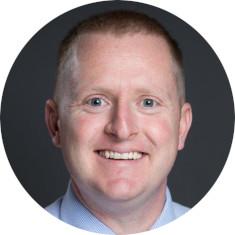
Phil Swan, CFE
Gate City Bank, Assistant Vice President, Fraud Manager
CPE: 1.0 | Ethics CPE: No
Session Level: Intermediate
Field of Study: Communications and Marketing
Recommended Prerequisite: Experience with fraud prevention programs
How does your organization educate their customer base as well as communities? Does your organization take a proactive approach to fraud prevention by educating their communities on fraud and scam topics? How does this external evangelization work into your fraud prevention strategy? What positive benefits does this bring to your organization besides fraud prevention?.
You Will Learn How To:
- Prevent fraud by educating your customer base and community on fraud topics
- Recall effective strategies to communicate fraud prevention strategies
- Recognize the benefits of building a basic knowledge of fraud and scams within the community
Agile Fraud Risk: Addressing the Dynamic Nature of Fraud in an Agile Tech World - SS16

Nicholas Harris
CPE: 1.0 | Ethics CPE: No
Session Level: Intermediate
Field of Study: Specialized Knowledge
Recommended Prerequisite: Knowledge of the basic principles of risk management; basic knowledge of the elements of fraud prevention, detection and response associated with fraud strategy
Traditional fraud risk management techniques are being found wanting in a world demanding agile technology, quick go-to-market strategies and frictionless customer experience. Global organizations are having to make decisions to trade-off traditional and lengthy risk management practices and associated controls against speed to market and improving the customer experience. The question most organizations are grappling with is how to implement agile fraud risk management practices and controls while balancing this trade-off. They also must address the ever-changing nature of fraud risk where criminals and syndicates are looking to exploit digital services and channels in an unprecedented and exponential manner. In this session, you will learn about agile fraud risk methodology and practices via practical examples and plain business language, as well as gain insight on how to address the risk of fraud as we progress into the 4th Industrial Revolution.
You Will Learn How To:
- Define agile risk management concepts specific to fraud
- Connect the impact of the 4th Industrial Revolution to corporate fraud risk profiles
General Session: Rachel Wilson and Gurbir Grewal - Keynote Session

Rachel Wilson and Gurbir Grewal
CPE: 1.5 | Ethics CPE: No
Session Level: Basic
Field of Study: Specialized Knowledge
Recommended Prerequisite: None
In this general session, you'll hear from Rachel Wilson and Gurbir Grewal.
As the first-ever Head of Cyber Security for Morgan Stanley Wealth Management, Rachel Wilson is responsible for ensuring the integrity and confidentiality of firm and client data.
Gurbir Grewal is the Director of the SEC’s Division of Enforcement. Immediately before joining the Commission, Grewal was the Attorney General for the State of New Jersey.
Alt Assets: The Limitless Nexus of Fraud and Money Laundering - 7E

Christopher DeAngelis, CFE
Sallie Mae, Senior Director, Fraud Strategy
CPE: 1.5 | Ethics CPE: No
Session Level: Intermediate
Field of Study: Specialized Knowledge
Recommended Prerequisite: Familiarity with the three stages of money laundering.
Dozens of markets for alternative assets that include NFT digital collectibles, sneakers, sports trading cards, artwork, wine and video games have emerged or were rejuvenated during the COVID-19 pandemic. Since criminals follow the money, alternative assets are now quickly becoming an easy way to take advantage of collectors and speculators fueling astronomical sales prices via fraud schemes or as vehicles to launder money from other criminal enterprises. As a result, both fraud prevention industry professionals and law enforcement investigators need to look beyond the scope of traditional monetary avenues to learn the intricacies of myriad alternative assets and their place in the fraud ecosystem.
You Will Learn How To:
- Navigate alt assets, both new and old
- Recall lessons learned from case studies of significant fraud and money laundering scenarios involving alt assets
- Identify the best ways to detect and prevent alt asset laundering schemes and fraud scams
Tracing Cryptocurrency Transactions for Investigations - 7J

Craig Hicks, CFE, CA, CBP
Government of Canada, Senior Forensic Accountant
CPE: 1.5 | Ethics CPE: No
Session Level: Advanced
Field of Study: Information Technology
Recommended Prerequisite: Experience tracing cryptocurrency transactions
This session will begin with a case overview and a discussion of the types of evidence required for success in cryptocurrency investigations. You will then learn how to follow the money (tracing) on the blockchain, including attributing or de-anonymizing blockchain transactions. We will also address methodology to link anonymous and de-anonymized transactions. The session will conclude with report writing and structure and preparing your case for court.
You Will Learn How To:
- Identify the core components of a bitcoin or Ethereum blockchain transaction
- Compare the Unspent Transaction Model and the Account Model for tracing purposes
- Trace transactions with multiple tools
- Trace transactions without following false leads and classify transactions using investigative evidence
- Recognize the importance of parallel construction for legal cases
- Structure and write a report for court
General Session: Alex Gibey - Keynote Session

Alex Gibney
Enron: The Smartest Guys in the Room and The Inventor: Out for Blood in Silicon Valley, Director and Producer
CPE: 1.0 | Ethics CPE: No
Session Level: Basic
Field of Study: Specialized Knowledge
Recommended Prerequisite: None
In this session. you'll hear from director and producer, Alex Gibney.
Gibney called “the most important documentarian of our time” by Esquire Magazine has a signature cinematic style that lends itself to penetrating, gripping, and deeply insightful documentaries. His work has been the recipient of an Academy Award, multiple Emmy Awards, a Grammy Award, several Peabody Awards, the DuPont-Columbia Award, The Independent Spirit Award and The Writers Guild Awards.
Fraud Risk Universe: Identifying All Fraud Risks Threatening Your Organization - 9A/12A

Leonard Vona, CFE, CPA
Fraud Auditing, Inc., CEO
CPE: 1.5 | Ethics CPE: No
Session Level: Intermediate
Field of Study: Auditing
Recommended Prerequisite: Basic knowledge of fraud risk assessments
Has your risk model identified all the fraud risks impacting your organization? CEOs are going to prison and companies are paying hundreds of million dollars in penalties or judgments all because fraud risks have not been identified and properly managed. In this session you will learn how to use the fraud risk universe methodology to build a comprehensive fraud risk model.
You Will Learn How To:
- Define the scope of your fraud project
- Apply the fraud universe methodology
- Apply a step-by-step approach to fraud risk identification
- Create a comprehensive list of fraud risks
Investigations and Surveillance in Today's Landscape - 9B/12B
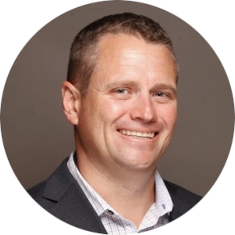
Keith Elliott, CII
Reed Research Investigations, CEO
CPE: 1.5 | Ethics CPE: No
Session Level: Intermediate
Field of Study: Specialized Knowledge
Recommended Prerequisite: Understanding of traditional investigation methods
Eighteen months after all of the world has changed, do you think individuals who would defraud, scam or act opportunistically toward others have changed their ways? Whether finding ways to breach online security, access more data, or capitalize on a weakness or loophole, perpetrators have not stopped. Instead, they have evolved and brought new perspectives to their schemes. In this session, you will learn about the latest attempts at fraud, how the landscape is evolving, and what the modeling and experts say is to come. This session will detail the evolution of the latest trends in investigating fraud claims and conducting surveillance in the pending, post-pandemic era. Gain insights into the trends and the latest efforts and best practices designed to help protect you, the investigation process and your company.
You Will Learn How To:
- Compare new trends in the fraud landscape
- Recognize investigation methods to counteract new fraud developments
- Implement best practices to protect against fraud
The Art of Social Engineering and How to Use It as an Investigative Technique - 9C
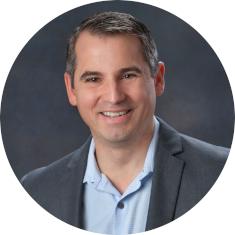
John Pizzuro, CFE
JP Consulting, President
CPE: 1.5 | Ethics CPE: No
Session Level: Basic
Field of Study: Information Technology
Recommended Prerequisite: None
Our online world and the use of electronic devices have led to most of our interactions occurring in cyberspace. They also changed how fraudsters can manipulate people no matter the software protection put in place by an organization. Technology contributes to people's perceptions and can lead to their manipulation, as evidenced by the cyberattacks at Colonial Pipeline and JBS Meat. This manipulation through social engineering has led to massive breaches, fraud, and organizations becoming victims of cyberattacks. This presentation will delve into the science of social engineering and explain how people get manipulated. We will talk about how to use social engineering techniques in your investigations, so criminals can provide evidence for your investigations.
You Will Learn How To:
- Recognize how fraudsters use technology to manipulate individuals into making control measures ineffective
- Analyze the victims’ mindsets and what makes them vulnerable
- Apply these techniques in fraud investigations
Inside the Lens of Elder Financial Exploitation - 9D
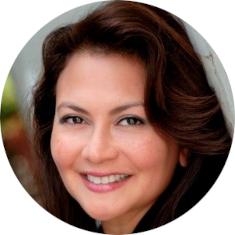
Dora Gomez, CFE, CRMA
EY, IT Advisory - Financial Crimes-Fraud and Compliance
CPE: 1.5 | Ethics CPE: No
Session Level: Overview
Field of Study: Specialized Knowledge
Recommended Prerequisite: None
We have seen a rise of elder financial exploitation (EFE) in recent years, and it continues to grow. Older adults will outnumber children in fewer than 15 years, and getting ahead of EFE is necessary for financial institutions to prevent and detect it. Mitigating loss to clients and financial organizations is just as important as reputational risk. Understanding the legal landscape is critical as well. Join us as we discuss current cases from forensic accountants who specifically investigate these cases and adult protective services experts.
You Will Learn How To:
- Gain insight into targeted fraud approaches
- Assess schemes and scenarios from adult protective services
- Identify regulations and laws that require attention
FinOSINT: Financial Open Source Intelligence - 9E/12E

Cynthia Hetherington, CFE
Hetherington Group, Founder and President
CPE: 1.5 | Ethics CPE: No
Session Level: Intermediate
Field of Study: Information Technology
Recommended Prerequisite: Basic internet investigations experience
Open-source intelligence (OSINT) is a well-covered area of expertise that encompasses many areas of content. Building on OSINT skills, this session will focus on financial intelligence research practices. This includes finding data related to transactional information, cryptocurrency markets, and any opportunity to track down fraudulent operations through the surface to dark web.
You Will Learn How To:
- Define FinOSINT
- Identify marketplaces through open sources online where financial information might be
- Identify resources specific to online asset investigations
Predict to Prevent: Unleashing Internal Audit’s Value - 9F
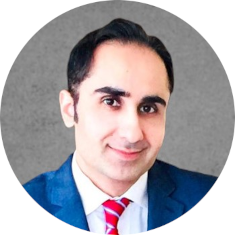
Imran Zia, CFE
Vancouver Fraser Port Authority, Director, Risk Management & Assurance
CPE: 1.5 | Ethics CPE: No
Session Level: Advanced
Field of Study: Auditing
Recommended Prerequisite: None
The scale and scope of risks are changing at an unprecedented pace, propelled by the increasing interconnectedness of organizations, as well as rapid disruptions in business models and technology landscapes. In this ever-changing world, internal audit functions are expected to transform their service delivery models to stay relevant. Internal audit leaders today need to focus on emerging threats. This calls for a stronger role in challenging prevailing assumptions and giving shape to key uncertainties in a way that illuminates the impact of plausible scenarios and informs senior management decisions. The search for emerging threats requires looking beyond the issues that can immediately and easily be anchored to business performance. To take this forward, internal audit leaders need to expand their comfort zones. Those who can mesh strategic vision, influencing skills and technological fluency on top of their core internal audit expertise will be best positioned to help their organizations navigate dynamic risk environments laden with potential shocks, disruption and fraud risks. This session will explain how internal audit should respond to the dynamic business environment and rethink ways of aligning with change. It will focus on the strategy that internal audit can adopt to play a more effective role in fraud risk assessments.
You Will Learn How To:
- Build and demonstrate strong business acumen and engage more intensely with the organization’s strategic ambitions
- Identify true value creation for key stakeholders
- Improve fraud risk assurance
- Develop valuable insights into emerging concerns
- Build an effective risk culture and develop a creative lens to enable internal audit teams to see through the blind spots and improve their fraud prevention and detection capabilities
Behavioral Analysis and Truth Detection in the Remote Era - 9I/12I

Rupert Evill, CFE
Ethics Insight Pte, Ltd., Founder
CPE: 1.5 | Ethics CPE: Yes
Session Level: Overview
Field of Study: Behavioral Ethics
Recommended Prerequisite: None
What can we use to establish truth at a distance? Whether you're conducting investigations, audits, risk assessments or training, you need to know what people think and feel but might not say. First, we must understand the context. We need to consider the part that culture and context might play in communicating, dealing with confrontation and viewing hierarchy. We must also consider how distance (including WFH) might impact what we do or do not say. Using this knowledge, we can adapt and revise our rapport-building and conversation management approach, including questioning techniques. We will also look at the role that technology can play, particularly gathering anonymous (and often more truthful) feedback. When observing the other party, consider how we display the truth verbally (content, tone, style), as well as through our faces and through our body language. There's a lot written on this topic, so we will look at some key areas (and pitfalls) to help you laser in on the truth remotely. Bringing these pieces together will not only elicit more insightful, productive and truthful remote interactions, it also tends to be a refreshing change to many other video calls!
You Will Learn How To:
- Identify tools, tips and techniques to calibrate context and culture and adapt your communication style accordingly
- Choose the right approach, question framework and model for building rapport and encouraging compliance when we often have little leverage (remotely)
- Recognize how we leak the truth (verbally, on our faces and through body language) and how the virtual interview helps and hinders this
- Determine when and how to use technology to get to the truth and generate
Challenges in Conducting Forensic Investigations of Family-Owned Enterprises - 9J

Chris Tierney, CFE, CTP
Moore Colson & Company, Partner
CPE: 1.5 | Ethics CPE: No
Session Level: Overview
Field of Study: Accounting
Recommended Prerequisite: None
This session will cover some of the unique issues that an investigator might face when analyzing a family-owned or -operated business. Key issues we will discuss are: operating agreements or a lack thereof, the impact of 50/50 ownership on approved expenses and payments, the mentality of family-run businesses when it comes to business and personal expenses, and issues that might arise when investigating allegations brought by one family member against another.
You Will Learn How To:
- Identify the unique characteristics of how a family-run business operates versus a corporate model
- Identify areas where family-run businesses might cover family-related expenses unlike a corporate model
- Deal with the family dynamic when family members accuse each other of wrongdoing
- Recognize the unique issues associated with how family-run businesses approve expenses and how this might complicate a forensic investigation
- Determine some of the unique operating and decision-making structures of family-run businesses
Increasing Integrity by Reducing Fraud at Nonprofits & Community Organizations - 10A

Rollie Dimos, CFE, CIA
CPE: 1.5 | Ethics CPE: No
Session Level: Basic
Field of Study: Auditing
Recommended Prerequisite: None
Unfortunately, nonprofit, religious and community organizations are not immune to fraud and abuse. The session will discuss the risk and impact of fraud on these organizations, why they might be more susceptible to fraud and the importance of internal controls to reduce this risk while increasing integrity and donor confidence. The presentation will also identify some of the more common fraud schemes that impact these organizations, including several case studies to illustrate the conditions that allowed the schemes to occur and what can be done to prevent them. The discussion will include an examination of the tension that exists between forgiveness and prosecution, and how some nonprofit organizations make the decision to prosecute or not to prosecute. Finally, the session will include a discussion of practical steps to reduce risk and strengthen controls at nonprofit, religious and community organizations.
You Will Learn How To:
- Examine the risk and impact of fraud in nonprofit, religious and community organizations
- Recognize the importance of internal controls to reduce risk
- Identify practical steps to reduce risk, strengthen controls and increase donor confidence
- Identify new and emerging fraud trends
- Examine the tension that exists between forgiveness and prosecution at nonprofit organizations
Indirect Methods of Proving Income - 10B

Jo-Ann Weiner, CFE
J. L. Weiner and Associates, LLC, CEO
CPE: 1.5 | Ethics CPE: No
Session Level: Intermediate
Field of Study: Accounting
Recommended Prerequisite: Knowledge and experience in determining income based on a forensic analysis such as a cash flow analysis and a bank deposit analysis
If there is a reasonable indication of unreported or additional income, an indirect method to reconstruct that income may be used. The methods for reconstructing income are tools that experts use to effectively calculate and ascertain income in matters such as divorce and criminal and civil investigations. Various methods of proving income — such as source and application of funds, cash transaction analysis, and bank deposit analysis — will be discussed. How and when each different method can be used will be discussed, as will solutions for challenges that may arise. The concepts of developing sources of cash available, consideration to cash on hand, the effect of cash businesses and co-mingling of funds will also be explored.
You Will Learn How To:
- Recall concepts of indirect methods of proving income
- Recognize the uses of various indirect methods of proving income and how to apply them
- Calculate a simple indirect method of proof
Conflicts of Interest: The Critical Questions to Address - 10C
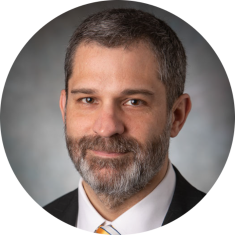
Kenneth Dieffenbach, CFE
U.S. Department of Energy, Deputy Assistant Inspector General for Investigations
CPE: 1.5 | Ethics CPE: No
Session Level: Basic
Field of Study: Specialized Knowledge
Recommended Prerequisite: None
Hidden conflicts of interest and conflicts of commitment can cause significant reputational damage and result in high-dollar fraud losses. As fraud examiners address these issues, we must focus on several key questions including:
- Was the conflict fully disclosed and vetted, or was it well-hidden?
- What happened? What are the potential or actual damages or loss?
- How could this have been prevented or detected earlier?
Additionally, fraud examiners must closely examine the various conflict of interest regulations, policies, contractual commitments and other controlling guidance to determine if the subject’s or organization’s actions indeed violated any specific conflict prohibitions or any disclosure obligations. We’ll use several case studies to demonstrate both the complexity and importance of these types of cases.
You Will Learn How To:
- Address investigations related to conflicts of interest and conflicts of commitment
- Develop a mental road map of the key issues to better focus efforts in this area
- Recognize the parallel and often overlapping issues of the alleged conflicted activity itself as well as disclosure obligations
The Dark Triad: Three Unconscious Threats to Objectivity for Fraud Examiners - 10D/11J

Bret Hood, CFE
21st Century Learning & Consulting, Director
CPE: 1.5 | Ethics CPE: Yes
Session Level: Advanced
Field of Study: Behavioral Ethics
Recommended Prerequisite: Previous experience in fraud examinations
While fraud examiners often have the best intentions, certain mental processes can interfere with our objectivity. Three particular maladies, referred to as illusory superiority, bounded ethicality and confirmation bias, can indirectly lead fraud examiners to flawed conclusions and examinations — which can directly affect their credibility. In this session, fraud examiners will learn methods to ensure that they conduct a fair and impartial fraud examination to the best of their abilities.
You Will Learn How To:
- Create mental triggers to improve ethical outcomes
- Determine how perception affects decision-making
- Evaluate methods to mitigate the negative effects of power and myopic vision
- Identify the effects of abstraction on risk assessment and mitigation
- Generate different perspectives and frames to improve objectivity
Death, Data, and Digital Legacies - 10E

Derek Ellington, CFE
CPE: 1.5 | Ethics CPE: No
Session Level: Basic
Field of Study: Information Technology
Recommended Prerequisite: None
Successful audits and fraud investigations are all about getting the right data. Documents, emails, text messages and even social media can all be critical to getting to the truth. But what do you do when the owner or custodian of your data is deceased? In this session we will take a fraud investigator’s look at how to deal with death from a data collection perspective. What are the best practices for collecting data for your investigations when the suspect, witness or even victim is deceased? Without the benefit of interviewing the person, how do we even figure out where to look? What steps should you take to preserve and collect data from devices and cloud accounts? What options do we have when devices are locked or encrypted? What do you need to know before reaching out to QuickBooks, Google, Apple or even Facebook when the account holder has passed away? As fraud investigators, we not only have to collect and preserve evidence from our cases, but from our own files and data well. What are some best practices for storing this data not only for the short term, months or years, but for decades? Data stored in boxes might last a hundred years, how long will data last in Dropbox? What is the best way to preserve this data now when it only exists electronically? Finally, we will talk about the emerging field of digital legacy "wills" that enable a person to indicate before they die how their data is to be handled after their death. Can these digital wills affect our access to the data and who decides? We will look at all these issues and gain a better understanding of death, data and digital legacies.
You Will Learn How To:
- Explore best practices in audits and fraud investigations for data collection when dealing with a deceased custodian
- Identify who owns the data and potential legal gray areas when accessing cloud accounts and social media
- Navigate the trend toward digital legacy plans and what that can mean for your investigation, including who controls the data
- Consider digital data storage for not just for years or decades, but for hundreds or thousands of years
Discover More with Less: Unlock Your Team's Potential by Putting New Technologies in Their Hands, Sponsored by MindBridge - 10F

Danielle Supkis Cheek, CFE
MindBridge, Vice President of Strategy and Industry Relations
CPE: 1.5 | Ethics CPE: No
Session Level: Overview
Field of Study: Information Technology
Recommended Prerequisite: None
Time is never on the side of auditors and CFEs when investigating and supporting audit, risk management and fraud detection processes; it’s always a do-more-with-less situation. By upgrading the technology stack used, embracing automation and artificial intelligence, staff will be able to use analytics to dive deeper in less time, discovering more meaningful risks and potential issues. Delve into use cases by leading organizations who have been successful in implementing change within their organizations and see an interactive demo of some capabilities easy enough for every team member to use. Join this overview of technologies and approaches to harness next-generation concepts today.
You Will Learn How To:
- Determine how data can tell you what’s “wrong” in an organization
- Apply change management in technology-led programs
- Examine real-world use cases of successful implementations of artificial intelligence
- Evaluate new technologies
The Case of the Man Cave Interactive Case Study - 10I
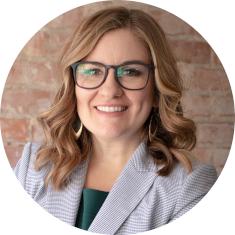
Leah Wietholter, CFE, PI
Workman Forensics, LLC, CEO
CPE: 1.5 | Ethics CPE: No
Session Level: Intermediate
Field of Study: Specialized Knowledge
Recommended Prerequisite: Knowledge and experience with auditing, fraud investigation, or forensic accounting engagements
This session is based on an investigation of a multimillion-dollar embezzlement in which the subject used stolen funds to purchase assets later recovered. Using case story videos and a digital evidence dashboard, attendees work the case to uncover the loss to the client, identify recoverable assets, and classify the methods by which funds were stolen by fraud scheme. In addition to the case study itself, the presentation also focuses on the standard of objectivity and its practical application in investigations.
You Will Learn How To:
- Apply the ethical standard of objectivity
- Apply basic data analytics concepts to a real-world experience
- Quantify loss based on best evidence
- Communicate loss and other findings
In-House Forensics, Fraud and Compliance Career Paths - 10J

Anna Schreff, CFE, CPA/CFF, Naddav Paran, CFE, CPA, Aditya Yerramilli, CFE, CPA, CGMA, Travis Armstrong, CFE, CPA/CFF, Lauren Russell
CPE: 1.5 | Ethics CPE: No
Session Level: Basic
Field of Study: Personal Development
Recommended Prerequisite: None
Have you ever felt that rush when you find the hot document that is the missing link in your fraud investigation? Do you enjoy designing processes that minimize risk without compromising business objectives? Well, why not do it all? In-house investigations teams, compliance program management, and consulting present a growing space where CFEs can leverage their expertise to help companies manage risk across various disciplines from end-to-end. In this panel discussion, a collection of fraud investigators, compliance program managers, and external consultants from companies including Google and Meta will talk about the critical roles they play in their organizations and how their careers led them to where they are.
You Will Learn How To:
- Identify the roles and responsibilities of in-house corporate investigations teams, compliance program managers, and external consultants
- Examine a variety of different career trajectories that can lead to a fulfilling career in financial misconduct investigation/prevention and risk management
- Identify critical skills that anti-fraud professionals should consider acquiring to maximize their career opportunities
Exploring the Updated ACFE/COSO Fraud Risk Management Guide - SS17

David Cotton, CFE, CPA, CGFM
Cotton & Company, Chairman
CPE: 1.0 | Ethics CPE: No
Session Level: Update
Field of Study: Management Services
Recommended Prerequisite: Familiarity or experience with applying the ACFE/COSO Fraud Risk Management Guide
The ACFE/COSO Fraud Risk Management Guide (FRMG) was published in 2016 and quickly gained acceptance for providing best practices to prevent, detect, and thus deter fraud. The fraud landscape is constantly changing and evolving. Accordingly, ACFE and COSO are refreshing the FRMG to keep it current and relevant in the changed and changing fraud environment. In this session, we will dive into the changes in the upcoming FRMG. All anti-fraud professionals will benefit from this session's focus on the refreshed and improved FRMG.
You Will Learn How To:
- Identify what the new, improved FRMG will contain
- Recognize how a comprehensive governance process needs to integrate internal control, enterprise risk management and fraud risk management
- Navigate an in-depth look at the fraud risk assessment process
- Assess how ACFE's fraud risk management tools can be used in support of fraud risk management
“Don’t You Lie to Me": Analysis of Ponzi Scheme Outcomes and Legal Theories - SS18

Christopher Ekimoff, CFE, CPA, Jordan Maglich
CPE: 1.0 | Ethics CPE: No
Session Level: Intermediate
Field of Study: Business Law
Recommended Prerequisite: Basic knowledge of Ponzi schemes, investment fraud, and statistical analysis
This session will provide analysis and insights based on research into decades of settled legal statutes, enforcement actions and restitution regarding Ponzi schemes. The unique nature of Ponzi-based frauds involves characteristics that can make a scheme more difficult to detect and enable it to run longer than other fraud schemes. The session will discuss statistical research into recent Ponzi matters (as recorded by ponzitracker.com) and provide a baseline understanding of the legal intricacies and methodologies dictating the resolution of Ponzi enterprises.
You Will Learn How To:
- Recognize relevant elements of Ponzi schemes in recent history, including size, length and frequency
- Compare outcomes of Ponzi cases regarding amounts stolen or misappropriated, amounts returned to investors and costs to receivers or bankruptcy trustees
- Identify governing legal theories and financial methodologies involved with winding down Ponzi businesses
- Implement best practices for identifying potential Ponzi schemes
Operation Outsource: Investigating the Call Centers Behind the IRS Scam - SS19
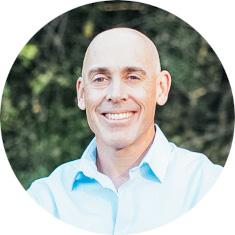
Kristofor Healey
Black Bear Security Consultants, LLC, Owner and Chief Executive Officer
CPE: 1.0 | Ethics CPE: No
Session Level: Overview
Field of Study: Specialized Knowledge
Recommended Prerequisite: None
This presentation is a case study of Operation Outsource — a three-year, multi-organization government impersonation investigation into India-based call centers targeting U.S.-based victims that resulted in hundreds of millions of dollars in fraud losses to American consumers. At the conclusion of the investigation, dozens of individuals were arrested in the U.S. and judgments were filed for millions of dollars in restitution and forfeiture. Through the course of their investigation, agents revealed an international fraud network, vast in scope and complexity, portraying themselves to be representatives of the Internal Revenue Service (IRS), Social Security Administration (SSA), Department of Homeland Security (DHS), Drug Enforcement Administration (DEA) or other government agencies. Schemes conducted by these imposters resulted in victims, mostly older individuals, believing that they were conducting business with actual government officials. Often the victims were told that they had an outstanding warrant and/or order of deportation, and that they would be arrested immediately if they failed to comply with the callers. In order to avoid arrest or deportation, the victims were ordered to pay the imposters large sums of money via a number of methods. Money sent by these victims was then laundered through a series of complex transactions using a U.S.-based hawala network. This presentation will be a deep dive into how these sophisticated international telephone and computer scams work, how fraud investigators can gather evidence, how to identify the scammers' methodologies and the tools we have as investigators to derail these schemes. Operation Outsource is the topic of a Sony Entertainment/Campside Media serial podcast currently in production.
You Will Learn How To:
- Recall India-based call center scams and their U.S.-based money laundering networks
- Recognize the various scripts and methodologies in use by the scammers to target vulnerable victims
- Assess hawala and its use in money laundering crimes
- Determine ways to educate the public about these scams and basic skills for identifying victims and intervening on their behalf
Best Practices Learned the Hard Way: What 50 Years of Fighting Fraud Taught Me - SS20

Kenneth Citarella, J.D., CFE, CIPP/US
Guidepost, Senior Managing Director
CPE: 1.0 | Ethics CPE: No
Session Level: Basic
Field of Study: Specialized Knowledge
Recommended Prerequisite: None
Experience is the best teacher, and that experience can include hard work that pays off, lucky breaks and costly errors. When you fight fraud for long enough, you will become familiar with all three. This presentation will cover a wide range of investigations, the problems they presented and how they were addressed. We will examine what theories and practices succeeded and why they did, and why the unsuccessful ones did not. We will also explore issues that arose during the investigation and litigation of fraud cases to develop a sound understanding of the full scope of fraud fighting, from identifying an objective to collecting the evidence and presenting it in court or other forums. Fraudsters often think they are the smartest person involved in the situation and if they are aware of or anticipate an investigation you can find yourself engaged in chess match of competing strategies trying to reveal or obfuscate the fraud. Here again, we will discuss what these contests revealed about successful and not-so-successful techniques. Attendees will receive the benefit of 50 years of experience, which they can apply right away to current cases, reducing the learning curve and increasing the skills and strategies they can deploy for successful investigations.
You Will Learn How To:
- Anticipate problems and prevent them from being a threat to the investigation
- Define the objectives of an investigation and focus your efforts on achieving them
- Lead an investigation team when the going is really tough
Fraud in the Cannabis Industry: Red Flags and Case Studies - SS21

Mitzi Keating, CFE, CPA
Citrin Cooperman, Partner
CPE: 1.0 | Ethics CPE: No
Session Level: Intermediate
Field of Study: Accounting
Recommended Prerequisite: Familiarity with basic accounting, financial statement, and cash flow concepts
In this session, you will learn how to spot cannabis-specific red flags, including typical cash flow issues and concerns, and apply industry-specific knowledge to identify potential discrepancies that might indicate fraud. This session will use real-world cases in the industry to help you evaluate and identify areas of concern; it will also will give you a roadmap to asking the right questions to educate yourself about the company and to help you remain skeptical about cannabis businesses. We will highlight various seed-to-sale tracking systems, including some of their limitations, and highlight retail dispensary issues common within the industry. You will walk away from this presentation with a set of industry-specific tools that will help you sniff out potential industry problems.
You Will Learn How To:
- Identify cannabis-industry abnormalities by using ratio analysis to highlight red flags
- Examine sources and uses of cash to determine business viability based on available information
- Identify common accounting errors and limitations including aggressive tax positions taken and how those numbers might impact future cash flow
- Apply a toolbox of best practices to spot and identify potential issues
How to Eliminate Uncertainty in Your Audits and Investigations - SS22

John Clabaugh, CFE, PI
Liberty Forensic Advisors, Investigative Consultant
CPE: 1.0 | Ethics CPE: No
Session Level: Basic
Field of Study: Auditing
Recommended Prerequisite: None
This presentation will detail several evidentiary procedures that you can use to eliminate uncertainty in your audits and investigations. Why is this important? Any uncertainty or ambiguity in your work creates an opening for the other party to cast doubt on your findings. Uncertainty creates space for other parties to construct their own narratives that try to explain away their mistakes and discrepancies with various excuses. By eliminating uncertainty and ambiguity, you can make it much more difficult to successfully challenge your investigative and audit findings. Eliminating uncertainty and ambiguity also ensures that your findings are accurate. Using examples and evidence from successful cases, the presentation will show you how to implement several different enhancements that will fortify your investigative and audit work products so that they will withstand determined challenges from opposing parties. By the end of the presentation, attendees will be equipped with details about specific processes and procedures that they can implement in their own work.
You Will Learn How To:
- Receive, handle, and preserve evidence
- Anticipate problems and objections in your work
- Recognize the value of work papers
- Manage quality control, troubleshooting discrepancies and validating data
- Conduct peer reviews of findings
- Document and preserve communications for the record
Cybersecurity for Internal Auditors - SS23

Raj Sawhney, CFE, CISA, CRISC, Doug Murray
CPE: 1.0 | Ethics CPE: No
Session Level: Intermediate
Field of Study: Auditing
Recommended Prerequisite: 2+ years of IT Audit Experience
Cybersecurity is already on the top of mind for most boards and enterprise risk management professionals. However, auditors are often not equipped to meet this challenge from a cybersecurity audit perspective. This session will provide an overview of the frameworks, tools and guidance to conduct a cybersecurity audit, and how they can add value to an organization. We will also discuss industry best practices for cybersecurity auditing, the tools and templates available, and case studies for applying the knowledge presented.
You Will Learn How To:
- Conduct a cybersecurity audit
- Identify the top cybersecurity trends, including risks
- Compare tools and templates available for conducting a cybersecurity audit
- Apply practical lessons learned from case studies
From Fraud Investigator to NFT Auditor: The Convergence of Law and Technology - SS24

David Loxton Maurice Crespi
CPE: 1.0 | Ethics CPE: Yes
Session Level: Intermediate
Field of Study: Information Technology
Recommended Prerequisite: Basic knowledge of crypto and non-fungible tokens
Crypto, blockchain, Bitcoin and non-fungible tokens (NFTs) are at the forefront of the frighteningly rapid development of the way we do business and invest. What does this mean for good old-fashioned investigations? Do such things still exist? This presentation will explore the convergence of law and technology. All investigations, regardless of jurisdiction, are governed by a legal and policy framework. But the law is notoriously slow to change, as are lawyers. How then can an ex-prosecutor, practicing attorney and fraud investigator become an NFT auditor, verifying to purchasers of NFTs that they have indeed purchased the real thing? Through actual case studies, the presenter will demonstrate the inevitability of new waves of technological advancement and illustrate that we are never too old to reinvent ourselves.
You Will Learn How To:
- Identify core concepts in the crypto space
- Anticipate the inevitability of change and how to adapt to it
- Determine how NFTs can benefit and uplift communities
- Examine whether there is still room for the tried and trusted in risk management
Crypto-Crime and the Emerging Regulatory Environment, Sponsored by Thomson Reuters - 11A

Seth Sattler Todd Ehret
CPE: 1.5 | Ethics CPE: No
Session Level: Overview
Field of Study: Information Technology
Recommended Prerequisite: None
Criminal abuse of cryptocurrencies was at an all-time high in 2021 at $14 billion, up from $7.8 billion in 2020, according to some reports. Crypto-based financial crimes include the purchase of stolen credentials online, the purchase of illicit goods, ransomware payments and illicit funds layering. What are the transaction patterns or red flags that law enforcement and financial institutions can look for? How can financial institutions better differentiate between legitimate and nefarious transactions? How are regulators responding? Cryptocurrencies have enjoyed years of freedom from financial regulation. As acceptance of cryptocurrency skyrockets, new U.S. anti-money laundering legislation has called for virtual currency exchanges to fall under registration and compliance requirements. Multiple regulatory stakeholders must come to the table and set the course for the future. Until that course has been set, financial regulatory experts are working tirelessly to synthesize the latest information.
You Will Learn How To:
- Examine truths and myths around cryptocurrencies and financial crime
- Apply best practices for creating and implementing anti-money laundering (AML) compliance programs, including tracking transactions, identifying fraud and mitigating emerging risks
- Navigate and decode the global regulatory landscape for digital currencies (such as bitcoin)
Opening Pandora's Box: A Case Study on Applied Behavior Analysis - 11C
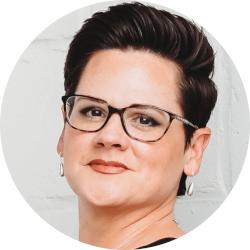
Jessica Gay, CFE
Integrity Advantage, Vice President and Co-Founder
CPE: 1.5 | Ethics CPE: No
Session Level: Overview
Field of Study: Specialized Knowledge
Recommended Prerequisite: None
When state, federal and health plan guidelines have conflicting information, procedure codes leave room for interpretation, and there is a global pandemic, we find plenty of opportunity to investigate schemes and billing concerns related to Applied Behavior Analysis. Not only are many health plans investigating such services, the Office of the Inspector General is also reviewing cases related to inappropriate billing in ABA. Certainly, an indication that concerns already exist with regards to provider billing. In a recent case study completed over the course of over a year, we identified major areas of concerns related to documentation integrity, gaps in written information, conflicting paperwork, and a variety of unusual scenarios affecting one of the most vulnerable populations receiving services: children with autism. The intention of this discussion is to bring to light the various anomalies that exist in the behavioral health realm with focus on identification of areas for improvement to ensure documentation excellence and appropriate billing practices.
You Will Learn How To:
- Identify schemes in behavioral health, specific to Applied Behavior Analysis
- Observe examples of documentation flaws, concerns, and areas for improvement
- Recognize where gaps in policies exist
Navigating the Challenges of Compliance Without Losing Sight of Ethics - 11D
The Costliest Cyber Fraud in History: Business Email Compromise - 11E
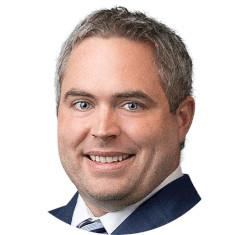
Ross Worden, CFE
Unit 42, Director
CPE: 1.5 | Ethics CPE: No
Session Level: Basic
Field of Study: Information Technology
Recommended Prerequisite: None
Ransomware gets a lot of press, but business email compromise (BEC) has been far more lucrative. According to the Verizon 2021 Data Breach Investigations Report, BECs net the attacker nearly three times the median payout of a ransomware attack. In 2020, more than 19,000 businesses were targets of BEC attacks, with losses exceeding $1.8 billion. From the theft of small business payrolls to a thwarted $1 billion bank heist by North Korean government hackers, every organization has become a target. This presentation will provide an introduction to the concept of business email compromise, then cover the top BEC attacks, how they work and the steps to take if you or your client has been victimized.
You Will Learn How To:
- Recognize the scope, common methods and targets of a BEC attack
- Identify commonly seen indicators of a BEC attack
- Assist a client with reporting a BEC attack and mitigating its financial damage
- Assist a client with kicking out the attackers and hardening their systems from future attack
Can Your Digital Behavior Reveal Your Age?, Sponsored by BioCatch - 11F

John Blaho
BioCatch, Senior Director of Product Marketing
CPE: 1.5 | Ethics CPE: No
Session Level: Basic
Field of Study: Information Technology
Recommended Prerequisite: None
What happens when a cybercriminal has obtained personal data about someone and uses it to create a new account? What protocols are in place at your financial institution to block this type of request from getting approved? In this session, we will go beyond personal information and look at the behaviors associated with application sessions. With BioCatch’s age analysis capability, we can even compare these behaviors against population data matching the stated age of the applicant to assure that the behaviors align with the data being entered. This way, you don’t get outsmarted by the data.
You Will Learn How To:
- Recognize key trends focused on account opening and onboarding fraud
- Determine how behavioral biometrics plays an important role in identifying genuine account activity
- Recognize inherent behaviors associated with genuine users that change as they age
The Pros and Cons of Conducting Virtual Investigative Interviews - 11I

Bruce Pitt-Payne
Royal Canadian Mounted Police, Investigator
CPE: 1.5 | Ethics CPE: No
Session Level: Intermediate
Field of Study: Communications and Marketing
Recommended Prerequisite: Understanding of traditional interview best practices
As with many aspects of our lives, the COVID-19 pandemic changed the way investigative interviews were conducted. This forced pivot has allowed practitioners who switched to a virtual format to become part of a real-life social science experiment, from which much has been learned. This presentation will cover what has been learned by practitioners, and eventually supported by researchers, so we can continue to conduct virtual interviews, when necessary and appropriate. It will speak to the individual phases of the PEACE Interview Framework (Planning and preparation; Engage and explain; Account, clarify, challenge; Close; and Evaluate), and allow us to interview witnesses and respondents (or suspects) with competence and confidence.
You Will Learn How To:
- Recount how the pandemic forced a change in how we conduct interviews
- Identify the phases of the PEACE interviewing method
- Assess the benefits and challenges of conducting virtual interviews
Crawl, Walk, Run: The Fraud Management Perspective - 12C

Jethro Cornelissen, CFE, CISSP, ISSMP, Ron Van Amsterdam, CFE
CPE: 1.5 | Ethics CPE: No
Session Level: Basic
Field of Study: Management Services
Recommended Prerequisite: None
Over time fraud has evolved from local to cross-border events; in many cases now, the victim, perpetrator and money are in different jurisdictions, moving rapidly (sometimes instantly) through products and parties in different areas. Turning your local anti-fraud operation into a well-connected global operation comes with many challenges, and this presentation provides the participants with the insights in this journey and solutions to get this done. In this presentation, the presenters will share their capability model and explain how it facilitated the transformation from a local, decentralized anti-fraud organization to a more connected, hybrid organization that leverages local and central fraud risk management capabilities as well as standardized technology and ways of working. The transformation addresses the five steps of effective fraud management (predict, prevent, detect, respond and recover) and covers both internal and external fraud risk management. In addition, you will hear about the importance of strong cooperation between first and second line of defense fraud experts and the importance of data for the successful execution of the program. You will also hear the challenges the presenters faced in this journey. The final part of the presentation will clarify the benefits of the hybrid organization model, including increased agility, shortened response times and the improved customer experience.
You Will Learn How To:
- Recognize the problem of silo operations
- Identify the benefits of cross-border fraud management
- Assess how a maturity model can facilitate improvements to your anti-fraud program
- Appreciate the importance of a strong fraud framework across first and second lines of defense
- Recognize the impact of proper fraud data management in convincing senior management
Measuring the Intangible: Best Practices for Keeping a Pulse on Culture - 12D

Jenny Bi, CFE, Bill Park, CFE
CPE: 1.5 | Ethics CPE: No
Session Level: Basic
Field of Study: Personal Development
Recommended Prerequisite: None
An organization’s culture is a key element to an effective compliance program to combat fraud. According to the U.S. Department of Justice’s (DOJ) guidance on evaluation of corporate compliance programs, measuring a company’s culture not only ensures the effectiveness of the compliance program, but also helps avert problems down the line. However, culture, tone at the top, and management commitment are intangible concepts that can be hard for fraud examiners to objectively evaluate. Additionally, cultural factors, local languages and behavioral psychology can bring further complications. In addition to evaluating culture at an organizational level, how do companies identify behavioral red flags of its executives that might be committing fraud? In October 2021, the DOJ emphasized that prosecuting individuals accused of white-collar crime is a top priority. What evidence should a fraud examiner consider in investigations focused on executives? What are some monitoring mechanisms companies can implement to detect potential wrongdoing early on? This presentation explores methods to measure and monitor an organization’s culture and executives’ behavior. The two co-presenters will share stories and cultural experiences through engaging discussions, providing the audience with actionable take-aways to apply to their areas of practice.
You Will Learn How To:
- Determine why measuring an organization’s culture helps ensure an effective compliance program
- Measure organizational culture and apply best practices
- Identify behavioral red flags of executives potentially committing fraud
- Discern how culture, language and psychology play a role in understanding culture and behavior
- Identify what and how evidence should be evaluated when investigating versus defending an individual executive
You're in Charge: Are You Ready for a Techno-Crime Challenge? - 12F

Walt Manning, CFE
Techno-Crime Institute, President
CPE: 1.5 | Ethics CPE: No
Session Level: Intermediate
Field of Study: Information Technology
Recommended Prerequisite: Basic familiarity with current technologies Previous training in fraud examination methodology and techniques
This session will present a fictional fraud case involving multiple technologies used by a fraudster to hide evidence and avoid detection. An insider hires a hacker on the darknet to gain complete access to his employer’s network, and they sell the information on various darknet markets. During the crime, the hacker uses deepfake technology, hacking Internet of Things devices and data poisoning to obtain confidential information while also covering her tracks. The fraudster communicates with the hacker using encrypted darknet email and secure messaging apps and stores the stolen data on an encrypted cloud storage service. The fraudster pays the hacker and receives his cut of the profits using cryptocurrencies that are challenging to trace. Although every individual fraud examination might not use all of these techniques, it is now critical for fraud examiners to realize that they will see more fraud cases involving these technologies. You’re in charge. Will you be ready?
You Will Learn How To:
- Identify how fraudsters can utilize emerging technology to commit a fraud
- Recognize the need for technical specialists during a fraud examination
- Assess new skills required to manage a techno-crime investigations team
The 3 Vs of Fraud Detection in Financial Services - 12J

Ken Matz, CFE
Zencos, Director of Solutions Development
CPE: 1.5 | Ethics CPE: No
Session Level: Intermediate
Field of Study: Information Technology
Recommended Prerequisite: Exposure to and awareness of the detection of fraudulent transactions in the financial services industry
Fraud detection often includes the analysis of large volumes of data from enterprise-wide systems to locate and identify potentially fraudulent behavior. One of the more efficient ways to conduct the analysis is using fraud rules, also known as fraud scenarios. Fraud scenarios are groups of logic executed on large volumes of data with the result of alerts being generated for triage, decisioning and case management by fraud and AML investigators. During the presentation, participants will learn about volume-, value- and velocity-based fraud detection scenarios and how most fraud detection scenarios can be classified into one or more of these three categories. The session will focus on the definitions of the three types of fraud scenarios and will provide examples of the different types of fraud detection scenarios as borrowed from real-world examples from AML and fraud projects that the presenter has worked on. Regardless of whether you are a data analytics professional, working auditor, investigator or Certified Fraud Examiner, this session will provide value through the exposure to examples of some of the more common (and not-so-common) fraud detection scenarios
You Will Learn How To:
- Identify the types of scenarios that are used in the practice of fraud detection
- Define value-, volume- and velocity-based fraud detection scenarios
- Recognize important factors in building fraud detection scenarios to fit your organization’s fraud detection mission
- Recognize considerations for testing and tuning fraud detection scenarios
Closing General Session: Conversation with a Fraudster - Keynote Session

Tom Hardin, John Gill, J.D., CFE
CPE: 1.0 | Ethics CPE: Yes
Session Level: Overview
Field of Study: Behavioral Ethics
Recommended Prerequisite: None
In this session, you'll hear from convicted fraudster,* Tom Hardin. Tom Hardin plead guilty to insider trading in 2009. He previously spent much of his career as a financial analyst in the hedge fund industry. In 2008, as part of a cooperation agreement with the U.S. Department of Justice, Hardin assisted the U.S. government in understanding how insider trading occurred in the financial services industry.
Policies
CPE Credit
Please note: To be eligible for CPE credit, you must complete the final exam within one year of purchase date. You may only claim CPE credit for a course once.
ACFE Online Self-Study Courses
Features:
- 24/7 access to courses through your Internet browser
- Save time and quickly earn CPE credits with instant access, grading and printable certificate
- The flexibility to start or stop a course and pick-up right where you left off
- No additional shipping fees
Learn More about accessing your online self-study course
Learn More about online self-study courses and their features
System Requirements:
- Internet access: High-speed connection recommended
- Speakers required for video sound
 The Association of Certified Fraud Examiners, Inc. is registered with the National Association of State Boards of Accountancy (NASBA) as a sponsor of continuing professional education on the National Registry of CPE Sponsors. State boards of accountancy have final authority on the acceptance of individual courses for CPE credit. Complaints regarding registered sponsors may be submitted to the National Registry of CPE Sponsors through its website: www.nasbaregistry.org/.
The Association of Certified Fraud Examiners, Inc. is registered with the National Association of State Boards of Accountancy (NASBA) as a sponsor of continuing professional education on the National Registry of CPE Sponsors. State boards of accountancy have final authority on the acceptance of individual courses for CPE credit. Complaints regarding registered sponsors may be submitted to the National Registry of CPE Sponsors through its website: www.nasbaregistry.org/.
Ordering and Returns
Satisfaction Guarantee
If you are not 100% satisfied with any ACFE product, you may return it to us, provided it is in excellent condition, for a full refund of the item minus the cost of shipping. Toolkits and bundles may only be returned as a complete set.
Ordering & Returns Policy

